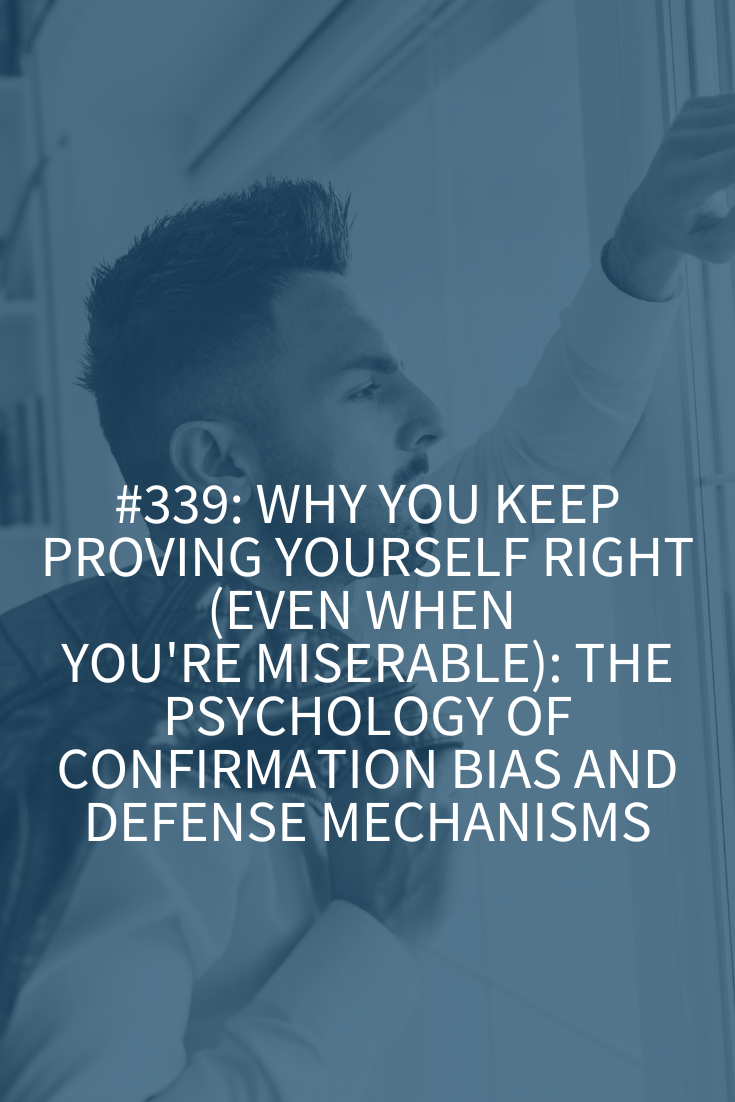
Some research shows that people complain once a minute during a typical conversation. Why the heck do we complain? The simple answer: because it feels good.
If you’re not happy in your relationship, complaining can become a really nasty habit. Not only is complaining hurting your relationship, but it’s negatively affecting your mental and physical health.
Complaining is like bacon, it isn’t good for you, but it’s ever-so-satisfying in the moment.
What You’ll Learn Today:
- The three reasons why you’re hurting yourself if you’re complaining
- The three things you can do if you’re ready to stop complaining.
Top Take-A-Ways:
You’re hurting yourself if you’re complaining because:
- What fires together, wire together: Whenever we repeat any behavior (like complaining), our neurons will reach out to each other as they try to make the information your processing flow easier. This makes it easier to repeat a specific behavior in the future. From a survival standpoint, our ancestors got better at hunting the more they did it. Hunting skills would become automatic and the brain would be more efficient and use less fuel to hunt.
- You’re damaging your brain and body. Complaining is bad for both your mental and physical health
- Neuronal mirroring: Your brain unconsciously mimics the moods of the people you spend the most time with. This process is called neuronal mirroring, and it’s the reason you can feel empathy which is, of course, a good thing. However, when it comes to being around a complainer, it’s a bad thing. The problem is that, even if you’re not complaining, but the people around you are, you can have all those same negative consequences (you can think of this as “second-hand complaining”).
The Three Solutions to Complaining
Tip #1: Have an Attitude of Gratitude
Simply put, when you feel like complaining, shift your attention to something that you’re grateful for. Having an attitude of gratitude can be achieved as simply as, writing three things you’re grateful for every day; writing a gratitude letter to the person you’re complaining about (you don’t have to send it); or thinking of one thing you’re grateful for any time you notice yourself about to complain.
Tip #2: Complain with a Purpose
If you feel something is so big that you need to say something and complain, make sure it’s solution-oriented complaining. To do that you need to:
- Have a clear purpose. Identify the exact outcome you want.
- Start with something positive. Starting with a positive helps keep the other person from getting defensive.
- Be specific. Talk about the current situation only (this means no “never” or “always” language) and be as specific as possible
Tip #3: Take the Challenge
You can join more than 11 million people worldwide who have taken Will Bowen’s Complaint Free® challenge!
Resources and Links:
Studies at Yale University have shown that practicing gratitude will result in higher alertness, enthusiasm, determination, attentiveness, and energy.
Studies as Harvard have shown that practicing gratitude improves health and strengthens relationships.
One study of couples found that partners who expressed gratitude for their mate felt more positive toward their person and also felt more comfortable expressing concerns about their relationship.
You can sign up for Will Bowen’s 21-Day Complaint Free Challenge












